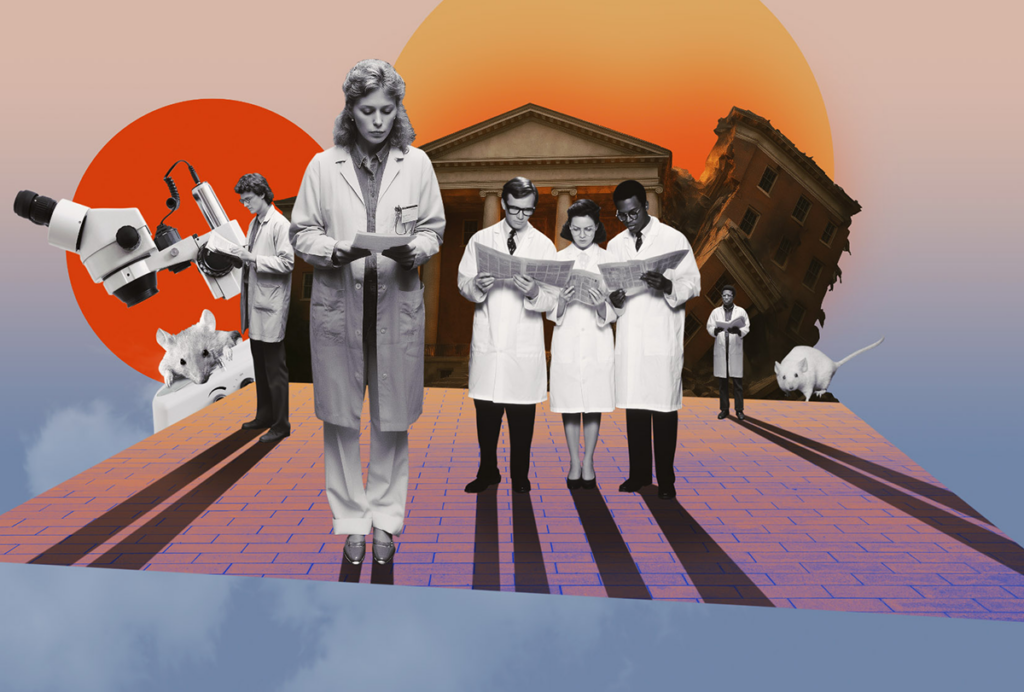In the early 20th century, neuroscience, like many other sciences, was mostly a solitary profession. Numerous seminal papers had single authors—or two at most. Clearly, things have changed. As a young principal investigator, I have come to appreciate that scientific skills practiced alone are no longer sufficient for my students to succeed. Teamwork and collaboration are now essential components of many neuroscience projects, and professional skills—such as communication and networking—are not just beneficial; they are vital.
The upcoming Society for Neuroscience (SfN) annual meeting provides an invaluable platform for students and early-career researchers to practice these latter skills—sharing their work, exchanging ideas and forging connections that could shape their careers. But its scale—more than 30,000 neuroscientists regularly make an appearance—can be overwhelming for even the most seasoned attendees. Without guidance, many students can find themselves lost at this meeting and unsure of how to make the most of the opportunities it provides.
There is no handbook for navigating a meeting of this size, so it is up to PIs to actively guide their students. Teaching them how to navigate a conference such as SfN is not just about helping them survive the experience—it’s about empowering them as scientists and professionals. So how do we incorporate the teaching of these “soft skills” into our lab work?
As a mentor, I decided to prioritize skill-building in my lab culture—and I make sure to carve out time to do so. I am a co-founder of Stories of WiN—a media project that highlights the accomplishments of women in neuroscience. And in a recent episode of our podcast, I shared advice I have accumulated over years of attending SfN, including how to use soft skills to build a scientific network.
In the podcast, I wanted to speak directly to trainees about these often ignored professional skills and provide a resource that young scientists and mentors alike could reference, just as they might refer to a recorded lecture. One important soft skill is learning to identify your goals, which can shift and change over time. Here I explain how to put it to good use to navigate SfN.
E
veryone knows you can’t do it all at SfN. You must accept that you will miss out on many talks, posters and networking events, even if they are relevant to your work. How do we deal with the overwhelming number of options SfN meetings provide? I propose a simple solution: Have a specific overarching goal. This goal will depend on your career stage and the status of your research project, but it will help you prioritize what talks, poster sessions and networking events to attend.If you’re on the verge of a career transition, for example, your overarching goal might be to explore future positions. A postdoctoral researcher on the job market or a graduate student looking for postdoc labs will want to focus on meeting prospective PIs and attending networking events. The key here is preparation and planning. Make sure to set up meetings with PIs or members of labs you’re interested in as far in advance as possible before the conference. If you are exploring switching fields, browse the program ahead of time to prioritize talks or posters in the field you’re interested in moving to, to help you make this decision.
Those who are starting up a new research project should focus on assessing the state of the field to ensure that their planned experiments are novel and have a sound methodology. Attending talks and poster sessions in your area of research will give you a sense of the major questions in the field and how your research can contribute to it. On the other hand, if you are wrapping up a project, your primary goal is to showcase your research and get feedback from colleagues about areas of improvement or gaps to address. In this case, practicing and honing your poster or talk should be your No. 1 priority.
Not every goal needs to be centered entirely around the science. For example, an independent investigator might want to meet with key collaborators or representatives of funding agencies for future grant applications. In this case, SfN is the place where everyone converges in person for one-on-one meetings.
The phrase “soft skills” seems to imply that these learned abilities are less concrete and less important. But in a field where the ability to communicate complex ideas and build professional relationships can determine the trajectory of a career, we must prioritize the development of these skills in our students.
As PIs, it is our responsibility to ensure that our trainees are not just exceptional scientists but also effective communicators and networkers. Whether we bring it up formally in a classroom or lab meeting, or instead in casual conversation, we must find effective ways to communicate this knowledge. The podcast episode offers insights based on my own experience, but we all owe it to the next generation to actively share soft-skill lessons. By learning from our rich and varied experiences, our mentees can develop into better communicators and the most collaborative generation of neuroscientists yet.





